Held in Bozen-Bolzano, Italy
27-28 November, 2024
The 8th Image Schema Day is an interdisciplinary workshop devoted to cognitive primitives, spatial reasoning, embodied cognition, analogical reasoning and investigations of the puzzle pieces of mind. The main topic is on image schemas, which were introduced as the generalised cognitive patterns learned from embodied experience by which humans use to reason and make sense of the world’s perceptions and expressions.
A truly interdisciplinary workshop, we invite contribution from a range of scientific, professional and artistic domains. This means that we invite researchers from linguistics, psychology, computer science, philosophy, humanities, artists and practitioners to submit their work and participate in the workshop. Our only requirement is that the core focus are on image schemas, cognitive patterns and conceptual primitives.
All contribution will be peer-reviewed by an international program committee of experts on the field. All accepted publications will be submitted for publication in CEUR-WS proceedings as per standard at ISD. See previous workshops and proceedings here:
Venue and time
The 8th edition of the ISD workshop series return to Bozen-Bolzano, Italy, to participate in the workshop program of the 23rd annual conference of the Italian Association of Artificial Intelligence (AI*IA).
It will take place in The Faculty of Design and Art, in room F6. Come to the venue, and follow the signs! 🙂
Want to listen in online? Join on Microsoft Teams
Connect to the meeting
Meeting-ID: 358 707 295 928
Password: KDq5Ym
Program
Click the link below to download all the accepted papers – note that this is not the camera-ready versions!
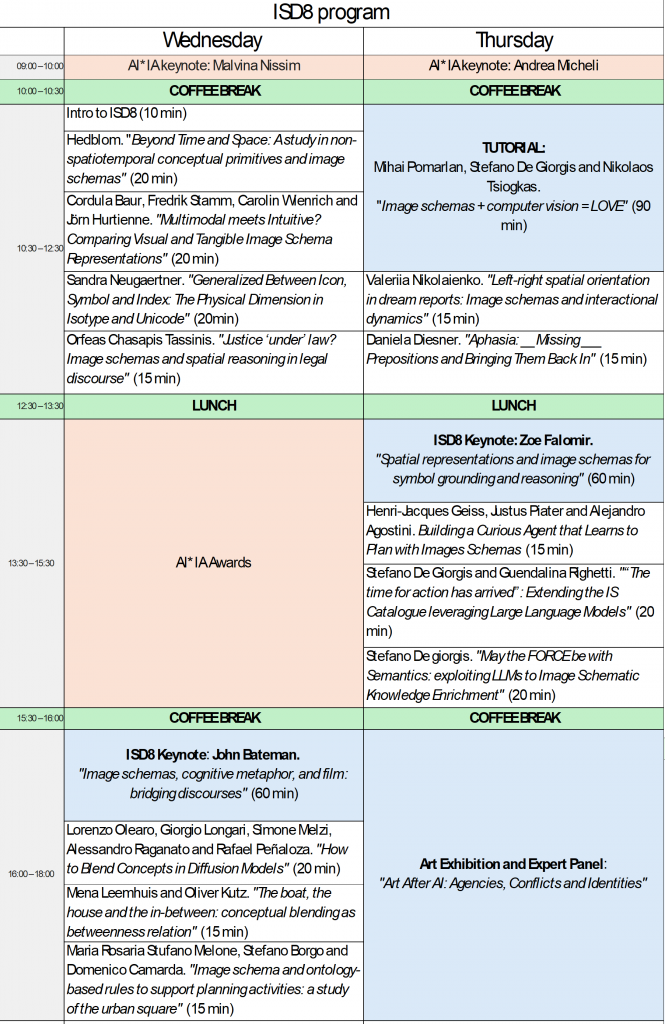
Keynote speakers
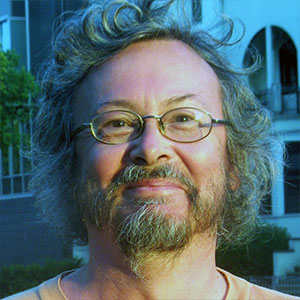
Prof. John Bateman
Bremen University, Germany
John Bateman, research professor in Linguistics, Bremen University, Germany, specializes in functional and computational linguistics and multimodal semiotics. His research interests include functional linguistic approaches to multimodal document design, semiotic foundations, formal ontology, theories of discourse, and the development of robust methodologies for multimodal analysis, particularly of film and visual narratives.
Image schemas, cognitive metaphor, and film: bridging discourses
Abstract: Although there has been active exploration of the role of cognitive metaphor theory and image schemas in the audiovisual analysis of film for a considerable time, such work remains primarily literary in orientation. This means that likely metaphors, blends, and image schemas are proposed for pieces of film and adopted as scaffolds for largely discursive analysis. In the meantime, there has been considerable progress in refining the notion of image schemas and suggestions both for logical formalisations of image schemes and for explicit connections to computational work involving simulation. Until now, these two areas of research involving image schemas have had very little contact. In this talk, I present a review of the current state of the art in discussing film in terms of image schemas and metaphor and suggest methods by which this could be brought together far more closely with formal and computational accounts. This will be illustrated with examples drawn from diverse filmic genres, which together then highlight the potential benefits of such a cross-fertilisation of approaches.
Prof. Zoe Falomir
Umeå University, Sweden
Zoe Falomir is a WASP associate professor of at the Computer Science Department at Umeå University. She has a double PhD title from the University of Bremen, Germany, and University Jaume I, Spain. She has won several awards including the City of Castellón Experimental Science award for her contribution to the automation of scrubber machines and automatic mosaic assembling. She has published more than 40 journal articles, more than 50 conference papers, 2 books and 19 chapters. Her main research interests are Spatial Reasoning, Knowledge Representation, Human-Machine Interaction, Machine Learning, Cognitive Systems, and Creative Problem Solving.
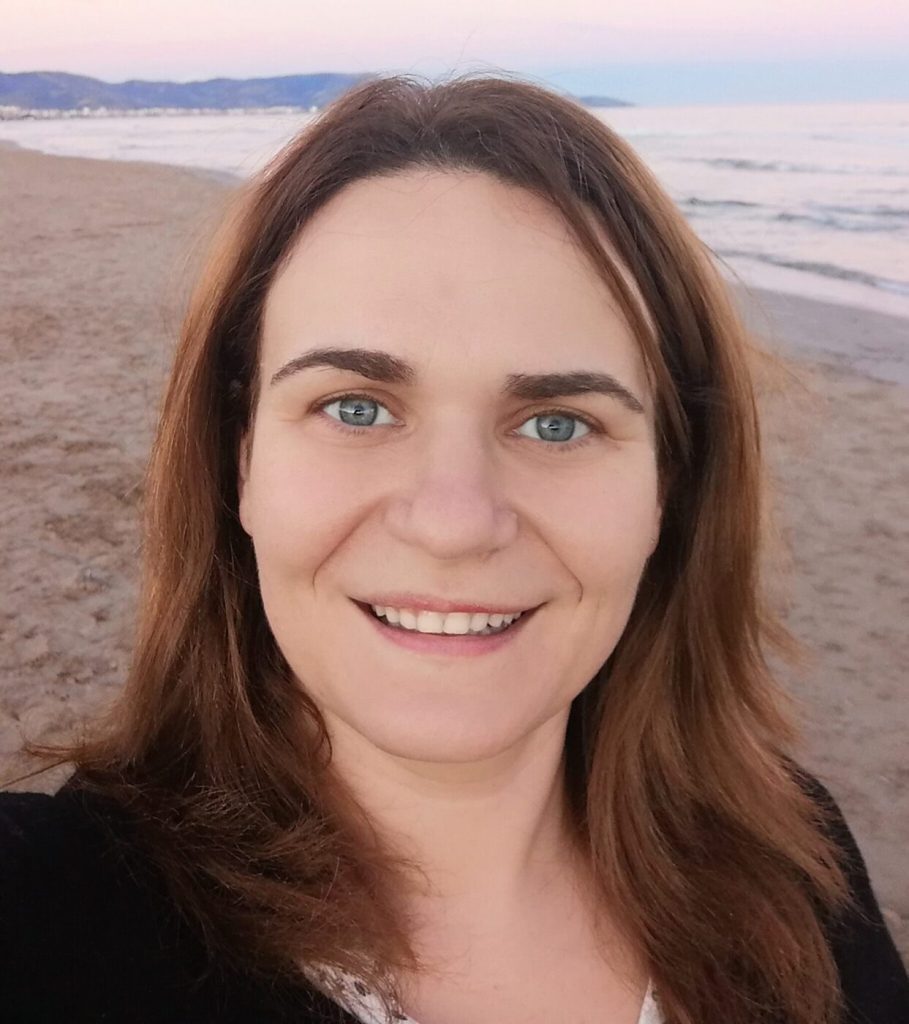
Spatial representations and image schemas for symbol grounding and reasoning
Abstract: Qualitative representations (QRs) concern the representations that people use to understand continuous aspects of the world. On one hand, QRs have been used in the literature to bridge the sensory-semantic gap towards solving the symbol grounding problem in autonomous systems (AS). On the other hand, QRs and image schemas have a common basis since both model embodied sensory-motor interactions and can be combined for deconstructing blends and find meaning. Finally, some qualitative reasoning models based on perceptual ability tests (e.g. paper-folding) may inspire new image schemas, for example, by AS learning the patterns of sensory-motor interactions that deconstruct the situation steps to resolve the tests.
Tutorial:
Image schemas + computer vision = <3
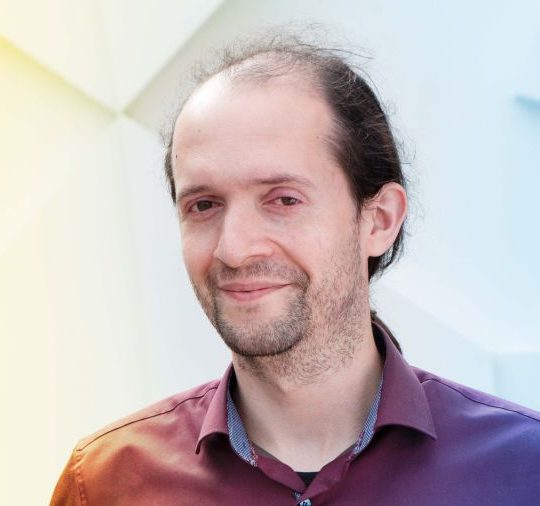
Dr. Mihai Pomarlan-Hawkin,
Bremen University, Germany
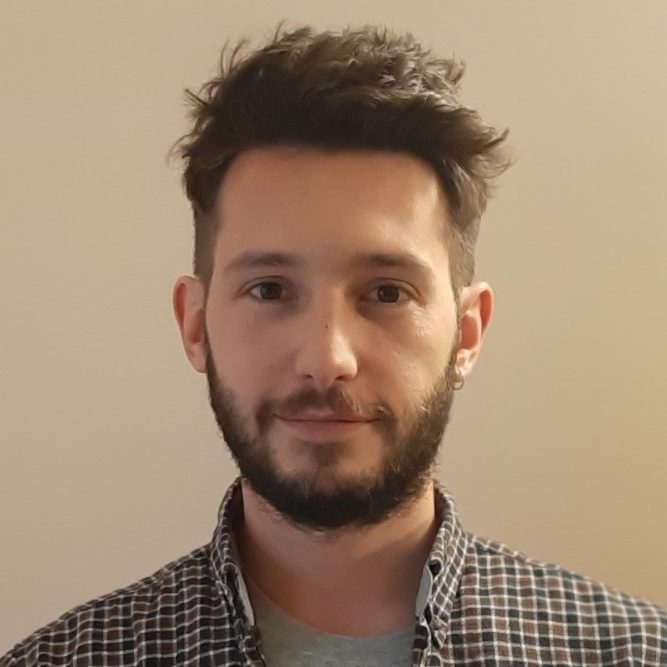
Dr. Stefano De Giorgis,
CNR-ISTC, Italy

Dr. Nikolaos Tsiogkas,
Leuven University, Belgium
Target audience: researchers of image schemas and their applications; researchers who work with image or video data and who would be interested in automated analysis of the main events and their participants from a short video.
Why participate: learn about an image-schematic approach to guide the attention of a computer vision pipeline for event segmentation and affordance recognition. Learn how to use knowledge graphs to represent image schema structure. Learn about tools to go from text/image/video to knowledge graphs of meaning.
Requirements: NONE. However, if you want to run the tutorial code on your own computer it should have a better than average GPU (GTX 20xx or better, 4GB VRAM or better).
Tutorial Summary: we will briefly discuss the theory behind image-schematic segmentation and functional object parts detection, but the bulk of the tutorial will consist in practical examples of running analyses on short videos. The audience will select which videos to analyze and, with the limit of staying inside what is expressible in concrete image schematic terms, what broad questions to ask of the perception system. The audience also discusses and evaluates the produced output — a knowledge graph asserting image schematic activations and participants, a verbalization of the graph, a set of annotations for event temporal boundaries and participants, a story board produced by an automatic selection of relevant frames and generated captions. The tutorial focuses more on usability, i.e. to teach participants how to use image-schematic analysis and to gather feedback from them about what they would further like to have from such a tool. However, questions about the inner workings of the system are welcome and will be addressed as they arise.
Call for papers and abstracts
Topics of interest includes (but are not limited to):
- Image schema investigations
- Spatiotemporal reasoning
- Formalisation of conceptual primitives
- Linguistic analysis of semantic patterns
- Artistic systems/pieces based on composition semantics
- Cognitive/empirical studies on conceptual thinking
- Metaphoric/analogical analysis of concepts
- AI/robot systems using image schematic components
Paper types and formatting instructions
ISD8 accepts 4 types of contributions:
- Full research papers (10-12 pages)
- Extended abstracts/short papers (5-9 pages) – typically work in progress, early results, descriptions of artistic work, or position papers.
- Summaries of recently published articles (2-5 pages) – title must include “paper summary” and the original paper must be mentioned in the abstract.
- Abstracts for presentation only (1-2 pages)
All page numbers are including references. Note that all contribution of less than 5 pages (Abstracts for presentation and Summaries of recently published articles) will NOT be included in the proceedings. Submitted contributions may not be submitted at any other venue at the time and should exclusively be written by the authors on the paper. We do not allow submissions in which parts are generated by AI not so we accept AI tools as explicit co-authors. AI tools may only be used for correction and improvement, not content creators.
All submissions must adhere to the CEUR-WS one column format. You can find the template here:
Submission and peer-reviewing
Submission to the workshop is to be done through Easychair.
All submitted contributions will be peer-reviewed by the experts in the program committee. Each submission will recieve at least two reviews.
Important dates
Abstract Submission deadline: September 23rd, 2024
For submitted abstracts we offer a chance to write the paper post-workshop (with a second round of peer-reviewing). If the paper is accepted in the peer-reviewing, it will be included in the proceedings.
Paper submission deadline: September 9th September 1st, 2024
Notification of acceptance: October 14th October 1st, 2024
Workshop dates: 25-28 November, 2024
Camera-ready version: 10th of December, 2024
Organisation and Program Committee
Organisers
- Maria M. Hedblom, Jönköping AI Lab, Jönköping University, Sweden
- Oliver Kutz, Research centre for knowledge-based Artificial Intelligence, Free University of Bozen-Bolzano, Italy
Program committee
- Stefano Borgo, Laboratory for Applied Ontology CNR-ISTC, Italy
- Roberto Confalonieri, Department of Mathematics, University of Padova, Italy
- Stefano De Giorgis, Semantic Technology Laboratory, CNR-ISTC, Italy
- Stephan Huber, Psychological Ergonomics, Julius-Maximilians-Universität Würzburg, Germany
- Jamie MacBeth, Department of Computer Science, Smith College, US
- Todd Oakley, Department of Cognitive Science, Case Western Reserve University, US
- María Sandra Peña Cervel, Department Filologías Modernas, University of Rioja, Spain
- Rafael Peñaloza, Information and Knowledge Representation, Retrieval and Reasoning Laboratory, University of Milano-Bicocca, Italy
- Mihai Pomarlan, Applied Linguistics Department, University of Bremen, Germany
- Guendalina Righetti, Department of Philosophy, University of Oslo, Norway
- Marco Schorlemmer, Artificial Intelligence Research Institute (IIIA), CSIC, Spain
- Dennis Tay, Department of English and Communication, The Hong Kong Polytechnic University, Hong Kong
